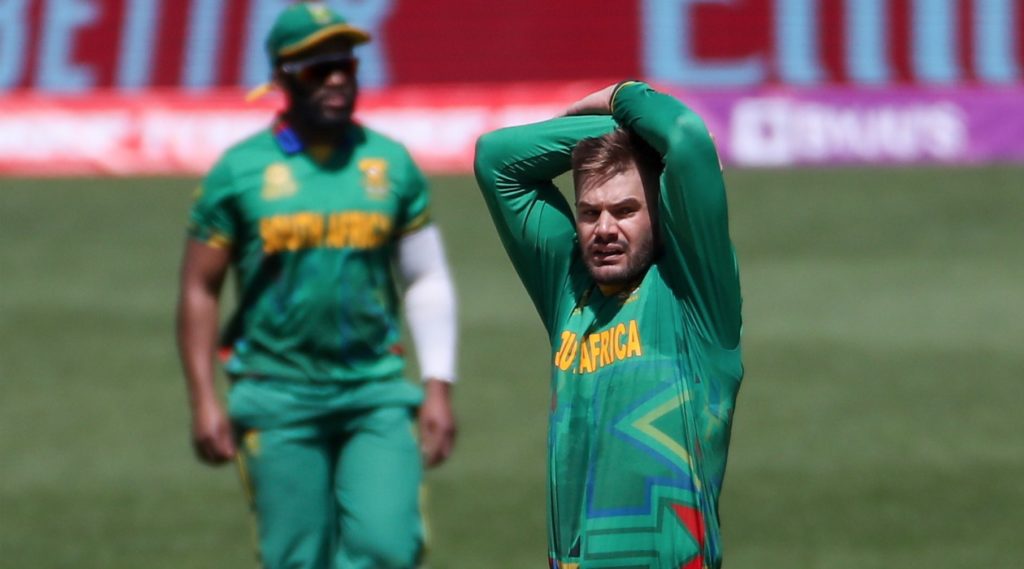The Proteas didn’t revisit old World Cup habits. They just weren’t good enough across two matches, writes RYAN VREDE.
I waited for the inevitable appraisal that the Proteas’ World Cup was a choke. It wasn’t. They were never good enough to go all the way and what happened in Adelaide on Sunday was a reflection of their standing in the format.
Prior to the tournament, I predicted they wouldn’t make it out of their pool. As a South African, I wanted that opinion to be embarrassed. It appeared it would be. All that stood between them and the semi-finals were the Netherlands, ranked 14 spots below them.
Indeed they had an opportunity to qualify a few days before but were brutally exposed by a Pakistan side who had been humbled by Zimbabwe earlier in the group phase.
One could find mitigation for the defeat by Pakistan, but not by the Netherlands. The argument that they would have qualified had it not been for point-sharing in a rain-affected match against Zimbabwe doesn’t stand up to intelligent scrutiny.
They had to beat the Netherlands, but couldn’t thanks to profound deficiencies in technical skill, tactical appreciation and temperament.
READ: Proteas’ energies were low – Boucher
There was a distinct lack of leadership on these issues, too. Mark Boucher and his coaching team were exposed as being grossly incompetent when came to preparing a gifted side to navigate the unique challenges of a World Cup.
Ultimately, their World Cup challenge amounted to a blitz against Zimbabwe, the excellent exploitation of favourable conditions against India in Perth, and a comfortable victory over Bangladesh, who are ranked ninth in the world.
This created an expectation that they’d win one of the two remaining group matches to qualify. To fail in a once-off shot can legitimately be considered a choke. To do so with two opportunities, is a fair reflection of the team’s standing in the format.
READ: I’d leave with my pride intact – Bavuma
I watched as skipper Temba Bavuma and head coach Boucher stumbled through excuses in the wake of their exit. I waited for Boucher, in particular, to take some responsibility for an unmitigated failure of leadership. Instead, he spoke in broad terms.
There is a ‘we’ dimension to their failure, but the best and most respected leaders in sports are able to access the perspective that failure, particularly in measures the Proteas delivered, speaks to fundamental failures in leadership.
But history will remember Bavuma and Boucher as the leadership duo who were largely responsible for the most embarrassing in a litany of premature World Cup exits. Let us never forget.
We should also remember a team laden with world-class talent who went missing when their country needed them. Among those are players who’ll be remembered as greats of the format, but not of the format’s greatest event.
To betray your talent in measures that compromise your country’s ambition is unacceptable. To do so in two consecutive matches speaks to a level of mental and technical fragility that rightfully has no place on a global stage at the showpiece tournament.
The inquest has already begun. It is unsurprising that my Twitter timeline was alight with those blaming transformation for the team’s failure. This is an unsophisticated argument with no factual base given that black and white players failed in equal measure against Pakistan and the Netherlands.
Boucher’s departure is a positive. He is not a modern coach. Every insider appraisal I’ve heard tells the story of a man trapped in a bygone era in the game. These insiders tell me he lacks the requisite emotional intelligence to successfully connect in meaningful ways with the collection of millennials and Gen Zers that constitute his squad.
Boucher’s successor must be chosen with the utmost care. A track record of success at the game’s elite levels is first prize. Alternatively, identifying a high-potential candidate who hasn’t yet had opportunities for exposure, but is highly competent in all of the key metrics for an international coach, must be the priority.
Transparency around this appointment is critical. Cricket South Africa acted with impunity in awarding Boucher the job in 2019. The game belongs to the people, and they are accountable to the people. The South African cricket fraternity is owed a transparent process.
The successful candidate will inherit a strong T20 unit with a clutch of players at the peak of their powers, and others tracking to fulfil their immense potential. There are young players at the domestic level who have shown enough to suggest that an international future awaits.
The future holds more promise than peril if the next steps are taken with careful consideration. Improved performance at future World Cups will be a by-product of an environment that is geared towards excellence in every significant facet of a team’s performance.
The present, however, is the reality that another Proteas team broke our hearts. And they did so because they weren’t good enough over two matches. The narrative that they choked is flawed.







